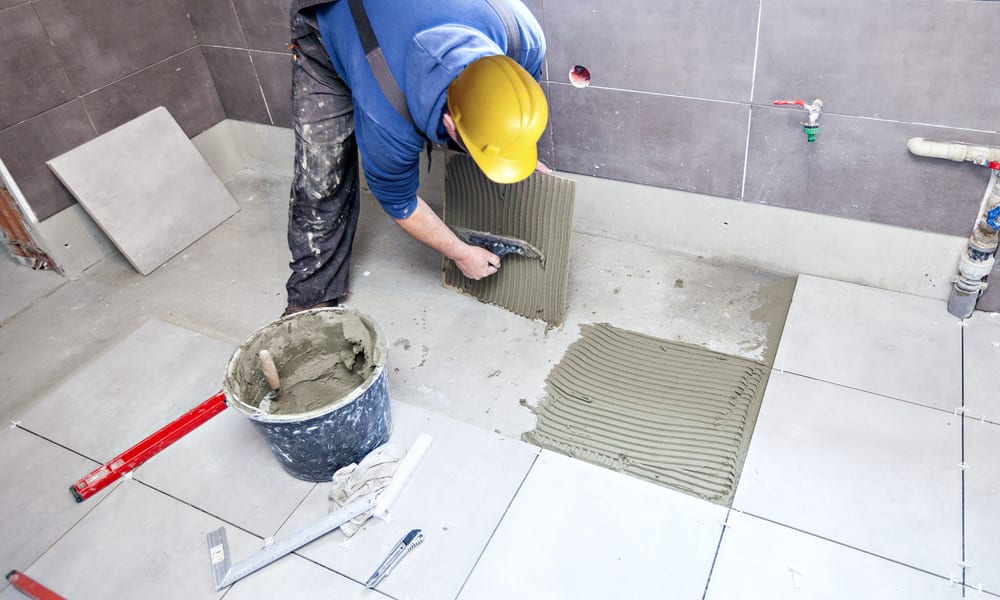How to Possibly Transform Your Garage Space with Durable Rubber Tiles
Garage spaces often endure heavy use, from vehicle traffic to workshop activities, making flooring choice critical for both functionality and appearance. Rubber tiles have emerged as a practical solution for homeowners seeking durable, versatile flooring that can withstand the demanding conditions of garage environments while providing comfort and safety.

Transforming your garage from a utilitarian storage space into a functional, attractive area requires careful consideration of flooring materials. Rubber tiles offer unique advantages that make them increasingly popular among homeowners looking to upgrade their garage floors. These resilient flooring solutions provide durability, comfort, and aesthetic appeal while addressing common garage flooring challenges.
Key Features of Durable, Non-Slip Garage Tiles
Rubber garage tiles incorporate several design elements that enhance safety and performance. The textured surface patterns create natural traction, reducing slip hazards even when surfaces become wet or oily. Most quality rubber tiles feature interlocking edges that create seamless installations without gaps where debris can accumulate. The material composition typically includes recycled rubber content, making these tiles both environmentally conscious and cost-effective. Thickness variations range from 8mm to 20mm, with thicker options providing greater cushioning and sound dampening properties.
How Rubber Tiles Might Resist Oil and Chemicals
Rubber flooring demonstrates notable resistance to various automotive fluids and household chemicals commonly found in garage environments. The non-porous surface prevents oil penetration, allowing spills to remain on the surface for easy cleanup. Most rubber tiles can withstand exposure to gasoline, brake fluid, antifreeze, and common cleaning solvents without degradation. However, prolonged exposure to certain petroleum-based products may cause some discoloration or softening, making prompt cleanup advisable for maintaining optimal appearance and performance.
Tips for Installing Interlocking Garage Flooring Yourself
Successful DIY installation begins with proper surface preparation. Clean the concrete thoroughly, removing all dirt, grease, and loose debris. Check for significant cracks or uneven areas that might require attention before installation. Start installation from the longest straight wall, working toward the opposite end. Interlocking tiles typically snap together easily, but ensure each connection is fully seated to prevent future separation. Use a rubber mallet to gently tap tiles into position if needed. Plan your layout beforehand to minimize cutting requirements, and use a sharp utility knife or specialized tile cutter for trimming edge pieces.
Maintaining and Cleaning Resilient Workshop Floors Easily
Daily maintenance involves sweeping or vacuuming to remove loose debris and dirt. For routine cleaning, use a damp mop with mild detergent solution, avoiding harsh chemicals that might damage the rubber surface. Oil spills should be addressed immediately using absorbent materials followed by degreasing cleaners designed for rubber surfaces. Periodic deep cleaning can be accomplished using a pressure washer on low settings, ensuring proper drainage to prevent water accumulation. Avoid using steel wool or abrasive scrubbers that could damage the textured surface.
Addressing Uneven Concrete with Flexible Flooring Options
Rubber tiles excel at accommodating minor surface irregularities that plague many garage floors. The flexible material can conform to small dips and rises without creating tripping hazards or gaps. For more significant unevenness, consider using self-leveling compound before installation, or opt for thicker rubber tiles that provide greater conformability. Some manufacturers offer tiles with varying thickness options specifically designed for uneven substrates. The interlocking design helps distribute weight across multiple tiles, reducing stress concentration on individual high spots.
| Product Type | Provider | Cost Estimation |
|---|---|---|
| Standard Interlocking Tiles | Gladiator | $3-5 per sq ft |
| Heavy-Duty Workshop Tiles | RaceDeck | $4-7 per sq ft |
| Recycled Rubber Tiles | Rubber-Cal | $2-4 per sq ft |
| Premium Textured Tiles | Swisstrax | $5-8 per sq ft |
Prices, rates, or cost estimates mentioned in this article are based on the latest available information but may change over time. Independent research is advised before making financial decisions.
Installation costs vary significantly based on garage size, surface preparation requirements, and regional labor rates. Professional installation typically adds $2-4 per square foot to material costs, though many homeowners successfully complete installations themselves with basic tools and patience. Consider factors such as intended use, traffic patterns, and aesthetic preferences when selecting rubber tile specifications for your garage transformation project.




